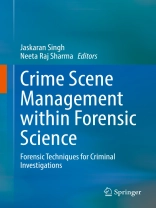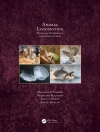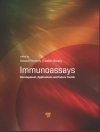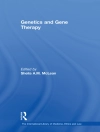This book, the second volume of Crime Scene Management in Forensic Sciences, reviews the role and impact of forensic evidence in criminal investigations. It also addresses the importance of post mortem examination in criminal cases.
The book investigates the use of insects and arthropods to estimate post mortem intervals during forensic investigations. Further, it discusses the physiological effects of xenobiotics at the time of death, based on their concentration and distribution in the body at autopsy. Importantly, it also discusses digital forensic investigation, which can be used for the analysis of digital evidence produced at a court of law. Lastly, it defines the structure and legal framework of these forensic evidences for the effective administration of the criminal justice system. It is an excellent source of information for forensics scientists and legal professionals.
Mục lục
1 Forensic Dna Analysis: A Powerful Investigative Tool.- 2 “Crime Scene Management Within Forensic Science-Forensic Techniques For Criminal Investigations.- 3 Small Size, Big Impact: Insects For Cadaver Examination.- 4 Dermatoglyphics & Other Impressions: Deciphering The Potential Of A Unique Hominid Niche.- 5 Postmortem Toxicology: A facet of drugs of expedites crimes.- 6 Forensic Biology: A Passport For Biological Evidence.- 7 Sexual offences: Recent methods of Investigation.- 8 Investigation Of Disaster Victim Identification.- 9 Review On Clinical Forensic Medicine.- 10 Firearms and Ammunitions: A sentient approach in criminal investigation.- 11 Digital and Cyber Forensics: A Contemporary evolution in Forensic Sciences.- 12 Fire Investigation: Arson Or Accidental.- 13 Psychological Evaluations: An Indoor game of Criminal Minds.- 14 Competence of Evidences: A Pragmatic Approach in Court of Law.- 15 Penology: A friend or foe for criminal justice system.- 16 Chain Of Custody: Scaling The Investigation To The Event.
Giới thiệu về tác giả
Dr. Jaskaran Singh is the Assistant Professor (Forensic Sciences) and Assistant Deputy Controller of Examination in School of Allied Health Sciences at Sharda University, Greater Noida, UP. He also served as Head of the Department of Forensic Sciences at Lovely Professional University, Punjab, India. He completed his Masters in Forensic Sciences (Gold Medalist) & Ph. D in Forensic Sciences at Amity University Noida. He has published more than 20 research articles and one edited book, and holds 20 patents and 6 copyrights (granted). He has collaborated with multi- and transdisciplinary experts in other branches of science and engineering in the forensic field, both nationally and internationally, and he is also a guest trainer for international and national police officers. He is an executive member of the Indo-Pacific Academy of Forensic Odontology, and has been a guest speaker at various conferences around the globe. He has received various prestigious awards and fellowships, notably, an INSPIRE fellowship (DST), Ministry of Science and Technology, Govt. of India; CSIR travel grants for International conferences; and a Shri. Baljit Shastri award for human values and ethics. He has served as a referee for a number of International and National journals.
Prof. Neeta Raj Sharma who holds a prestigious Ph.D. degree in Biochemistry from Jiwaji University, Gwalior, is currently leading the School of Bioengineering and Biosciences in Lovely Professional University, India, that encompasses several departments like Biotechnology, Microbiology, Molecular Biology, Bioinformatics and Forensic Sciences, as Additional Dean. She has a vast research, academic and industrial experience for over 24 years and has played a pivotal role in bolstering the foundation of department of Forensic Sciences in the school and keen in developing the diagnostic tools for forensic crime scene examinations, with her adept multifaceted experience. She is a visiting Professor at Birmingham City University, UK and is actively working in association with several esteemed universities in Canada like University of British Columbia, Mc Gill University, Laval University and University of Victoria. She has been the investigator of several externally funded international and national projects and is a fellow member of Association of Biotechnology and Pharmacy, India. She also bears to her credential membership of prestigious societies (Indian Science Congress, Association of Microbiologists of India). Till date, she has published 65 publications in peer-reviewed journals of high repute, 30 patents (published); 2 patents granted, and 8 copyrights, 4 edited books with Springer Nature and several articles in reputed magazines. She has been currently acting as guest editor and reviewer for several Scopus indexed journals of high standing and esteem..












